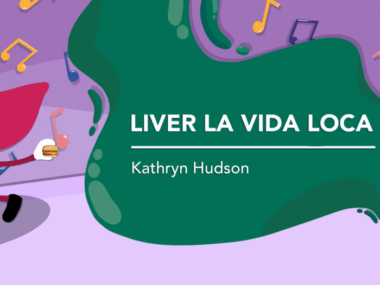Study fully enrolled of Rezdiffra for well-compensated liver cirrhosis
Study includes 845 MASH patients; exceeds enrollment target of 700
Written by |

A Phase 3 clinical trial testing Rezdiffra (resmetirom) in people with well-compensated cirrhosis, or irreversible liver scarring that still allows the liver to work, due to metabolic dysfunction-associated steatohepatitis (MASH) has completed enrollment.
Previously known as nonalcoholic steatohepatitis (NASH), MASH is a severe form of fatty liver disease wherein fat accumulating in the liver gives way to inflammation and scarring, or fibrosis. Over time, this can drive cirrhosis and liver failure.
Called MAESTRO-NASH OUTCOMES (NCT05500222), the study enrolled 845 MASH patients with well-compensated cirrhosis and at least three metabolic risk factors, exceeding the enrollment target of 700 participants.
“Today’s enrollment milestone brings us one step closer to our goal of delivering the first effective therapy to patients who currently have no approved treatment options for compensated [MASH] cirrhosis,” Bill Sibold, the CEO of Madrigal Pharmaceuticals, Rezdiffra’s developer, said in a company press release.
Rezdiffra became this year the first and only therapy approved in the U.S. for MASH. It was granted accelerated approval, alongside diet and exercise, for those with moderate to advanced liver fibrosis, but no cirrhosis. The therapy is also under review in the European Union and a decision is expected in mid-2025.
If the results of MAESTRO-NASH OUTCOMES are positive, they could support efforts to get Rezdiffra approved for MASH patients with well-compensated cirrhosis, a population that is at high risk of decompensated cirrhosis, where the extent of liver fibrosis prevents it from performing its functions, and liver failure, which leaves a liver transplant the only therapeutic approach.
“The MAESTRO-NASH OUTCOMES trial is important for patients and the [MASH] field more broadly because there is an urgent unmet need for therapies that can prevent progression to the devastating complications of decompensated and, by extension, reduce the need for liver transplants due to [MASH],” Sibold said. “A positive outcome for this study is also expected to support the full approval of Rezdiffra for noncirrhotic [MASH].”
Accelerated approvals are typically based on biomarker data that support a therapy’s efficacy, with subsequent full approvals requiring additional clinical trial data that confirm its safety and efficacy.
Expanding eligible MASH patient population
A once-daily oral therapy, Rezdiffra activates thyroid hormone receptor beta (THR-beta), a protein whose reduced activity in the liver is associated with disease progression and liver fibrosis in MASH. By increasing the protein’s activity, the therapy should slow the progression of MASH and prevent additional scarring.
Rezdiffra’s accelerated approval in the U.S. was partly based on data from the Phase 3 MAESTRO-NASH trial (NCT03900429), which tested it against a placebo in more than 1,700 adults with biopsy-confirmed MASH and moderate to advanced liver fibrosis. The results showed a significantly greater proportion of Rezdiffra-treated patients had MASH resolution and fibrosis reduction after a year of treatment.
The MAESTRO-NASH OUTCOMES trial seeks to expand the eligible patient population to include those with compensated MASH cirrhosis. Its participants will be randomly assigned to either 80 mg of Rezdiffra or a placebo for the duration of the study.
The trial’s main goal is to assess changes between Rezdiffra and placebo groups regarding the frequency of a composite clinical outcome event. This is defined as the occurrence of any event related to liver decompensation: death, liver transplant, ascites, hepatic encephalopathy, gastroesophageal variceal hemorrhage, or an increase in liver disease severity and risk of death based on the Model for End-Stage Liver Disease score.
Ascites refers to the buildup of fluid in the abdomen, while hepatic encephalopathy is a name for changes in brain function due to toxic substance buildup in the bloodstream. Gastroesophageal variceal hemorrhage is when abnormally dilated veins in the stomach and/or esophagus rupture and bleed. The esophagus is the tube that connects the throat to the stomach.
The trial is expected to last two to three years until the required number of composite clinical outcome events occur.
“Our confidence in the MAESTRO-NASH OUTCOMES study is grounded in the antifibrotic profile of [Rezdiffra] as a liver-directed [THR-beta activator] and supported by positive [one-year] data from 180 patients with compensated [MASH] cirrhosis studied in the Phase 3 MAESTRO-NAFLD-1 study [NCT04197479],” said Becky Taub, MD, Madrigal’s chief medical officer and president of research & development. “Madrigal is committed to long-term leadership in [MASH] R&D and we believe our fully enrolled outcomes studies will play a central role in shaping the [MASH] treatment paradigm over the next decade.”


